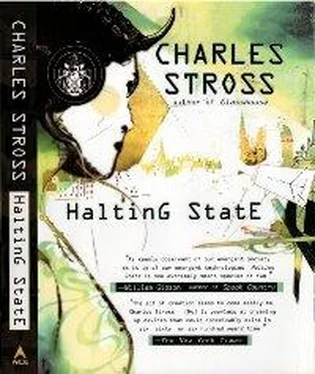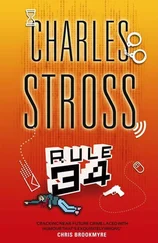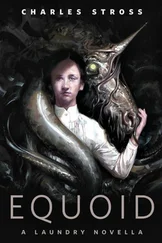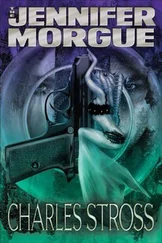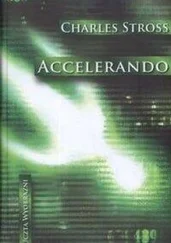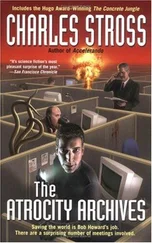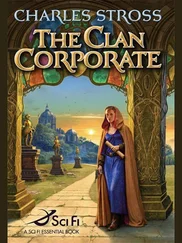“Jack?” She leans forward, visibly concerned. “What is it?”
You force yourself to take a breath and try to nail down the mess of emotions she’s stirred up. “I can’t…look, trust me on this?”
“Trust you?” She’s still tense.
Another deeper breath. “It’s complicated. I’ll try to explain later. For now, let’s just say there’s stuff Michaels knows about if he’s plugged into the police. And there’s nothing—from here— I can do for her.”
“But I’d have thought—” She stops, with a visible effort. “You’re sure?”
You nod, not trusting yourself to say any more. You feel shaky. It’s all true—Elsie is beyond your ability to help—but you don’t like to think about it. It’s just too painful.
Elaine sits back, looking thoughtful. After a moment, she glances away. “You trust Barry to look after Elsie, but you don’t trust his operation as far as you can throw him. Is that right?”
That’s an easy one to catch. “They’ve been penetrated by the other side. And what about the rest of it? That piece of paper? How do we know it’s genuine?”
She shakes her head. You trace the outline of her face against the dim light from the street filtering through the net curtains. “The paperwork’s the real thing. Either that, or the cop who handed it to us wasn’t. And with the lights and the way he bent the speed limit on the way over…no.”
“Bugger.” You take an experimental sip of coffee. “Okay. So SPOOKS is basically a tool that permits an electronic intelligence agency to run a metric shitload of unwitting human intelligence agents, weekend spies. They trained us, and now we’ve been activated to deal with a threat. The alleged threat, the one they say they want us to look at, is a different kind of gaming gambit: a botnet attack on a small European state, where the zombies are obedient human gamers who think they’re just having fun and the director is a procedural content generator—”
“Huh.” The tip of her nose crinkles slightly when she frowns. “I’m not a gamer, you’ll have to define your terms.”
“Terms?” You back-track, trying to work out what confused her. “Procedural content?” She nods. “Content is, well, the map of the dungeon, location of treasure, where the monsters live, what the wallpaper looks like. Any game is full of the stuff, and it’s expensive to do by hand—you need tile illustrators, narrators, musicians, programmers, a whole bunch of skills. So over the past couple of decades the industry’s put a lot of effort into procedural game design—AI tools that can design a virtual-reality environment on the fly for players to explore. It’s not just multiplayer games like Avalon Four; there’s been work on ARG—artificial reality games—that can take a set of starting hints and design a conspiracy to drop on top of the players. You know, generate scripts for phone calls, order up custom gadgets to be planted at certain locations, hire actors…?”
She looks blank, the same way she did right before you hit on your spreadsheet-as-programming metaphor, but this time you can’t quite see a way around it. “Artificial reality?”
“Yeah! SPOOKS is a variant on it, heavily mediated via the net, but you get ones in which there are actors and sets—you sign up to be inside the story. Like I LOVE BEES—that was the first one to go large—or DARK DESIGNS.”
“Pay to be inside the story.” She looks distant. “So, uh. Suppose someone’s set up a content generator to try and hijack a country. Bribe police constable A to ignore game-player B—who thinks it’s a game—to carry bomb C (which is a firework, modified by a pyrotechnics geek who thinks they’re building it for a special effects outfit) into a parliament building where useful idiot D will install the detonator. That sort of thing. Right?”
“Something like that.” You take another sip of coffee. “They’re exploiting our shitty wide-open crypto infrastructure, of course. Everything, phones, Internet, the lot, runs over TCP/IP these days—blame some really stupid decisions back in the oughties. They should have known better; it’s hackable as hell, so, in an attempt to lock things down, the government decreed that access to the national-level routers, the boxes that manage all the traffic, would be secured using a code called a one-time pad. OTP codes are great—they’re totally unbreakable if you don’t have a copy of the key—but they’ve got a big drawback: You need a copy of the key, a long sequence of random numbers, at each end-point. And if someone who’s not supposed to have a copy of the key gets hold of it, the whole thing is blown wide open. Anyway, what Michaels was telling us was, someone leaked those keys to Team Red. As the actual connections between routers are secured using symmetric cyphers that are easy to crack if you’ve got a quantum processor, it means they can snoop on anything . The National ID Register—never mind that it’s poisoned, full of bogus records—the ID cards themselves use last-generation public-key encryption that a quantum processor can break almost instantly. And if Team Red have got a copy of the backbone keys, they can impersonate anyone they want to be, up to a point. The content engine can fake the ID of the first minister, but it still takes a voice actor to impersonate the first minister on the phone, right? So they’ve got this amazing backdoor, but wherever possible, they’re doing stuff via the net. And as the net is so heavily surveilled, they’re focussing on the bits that are hardest to monitor—stuff that goes on inside the big distributed games in Zonespace, where the rules change from minute to minute, and the players can implement their own in-game game engines.”
“Right. Right.” She nods, her expression intent. “So we’ve got these two, uh, clans. Teams? Red versus Blue, playing for Scotland or Poland. And it’s all happening quietly when Chen and his accomplice…?”
“Chen’s over here, being a pair of hands for Team Red. And he’s got access to their key cracker back home, and he thinks, why shouldn’t I make some money on the side? It’s typical, really: Great plan, but the operational security is blown wide open because a team member got greedy and ran a bank robbery in Avalon Four. Which must have netted him, oh, all of about ten thousand euros’ worth of loot, and maybe a death sentence from the Guoanbu when they find out. Which is why he was so desperate to spill his guts when we showed up.” Unconsciously, you find yourself rubbing your ribs. Right where the pocket with your keyboard was. “Jesus. He probably thought we were zombies closing on him, and we were going to put him in a taxi.”
“The taxi was already waiting.” Elaine shudders delicately. “We weren’t its real target, we were just the useful idiots who were going to shanghai Chen. Only we screwed up.” She’s staring at you, you realize.
Timing is everything. (But at least the mummy lobe has shut its trap, leaving you to coldly consider the picture with your Spy Sensibility, or maybe your Gamer’s Gonads.) “I was arrested in Amsterdam.”
“Yes?” She sits up straighter.
“On Friday night, last week. The bank robbery on the Island of Valiant Dreams happened on Thursday morning, didn’t it? Triggering Michaels’s man-trap.”
“The man who never was, Nigel MacDonald—the fake identity built around your résumé.” She’s still staring at you. It’s as if you’ve fallen into the centre of her world. “How long have you been playing SPOOKS?”
“Huh? Like I said, I did it years ago—on-the-job research, actually.”
“Okay.” She makes deliberate eye contact. “So you expect me to believe that Hayek Associates had a Jack-shaped hole in its corporate structure just waiting for Mr. Chen to try a penetration attack on them?”
Читать дальше
